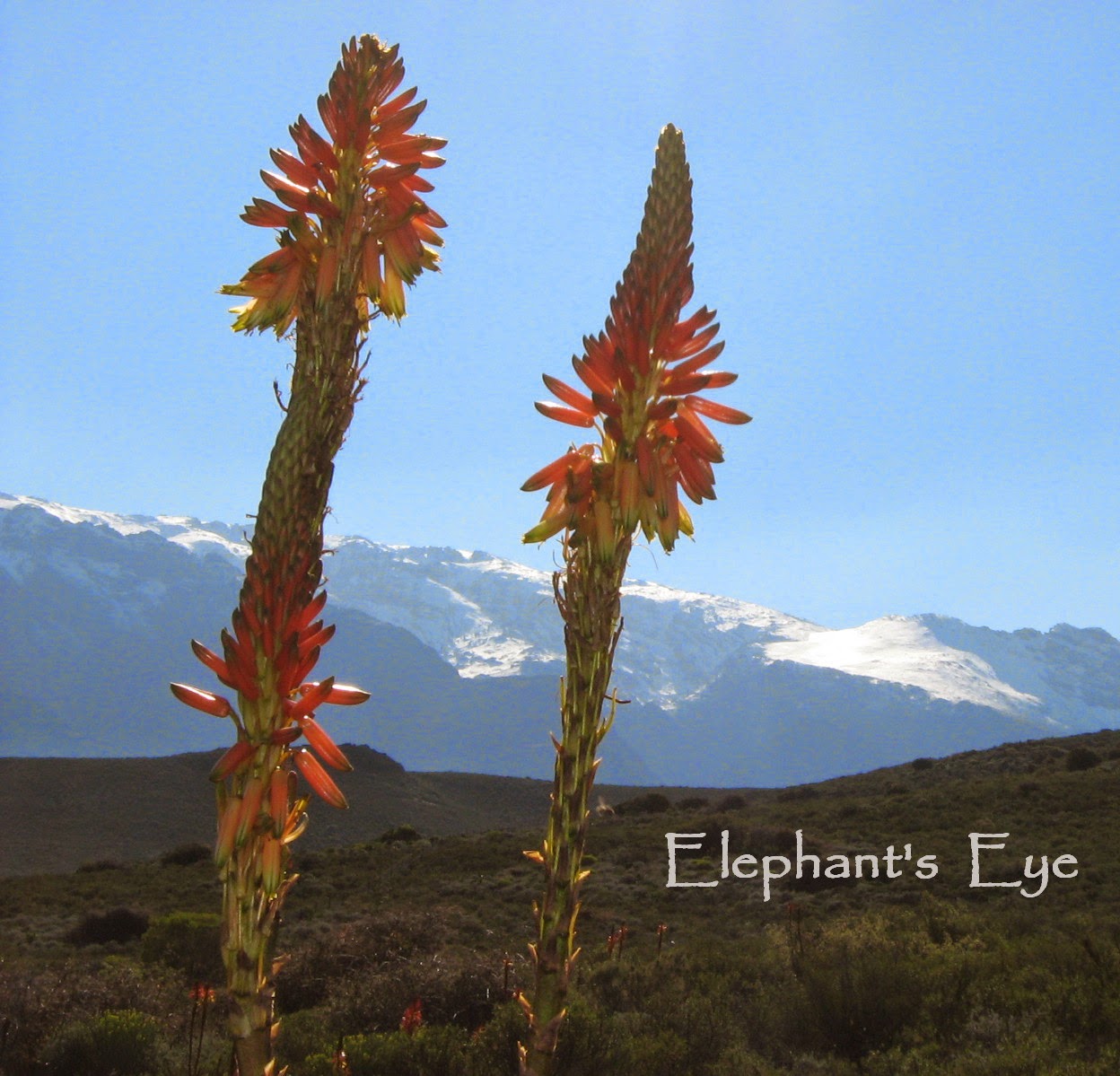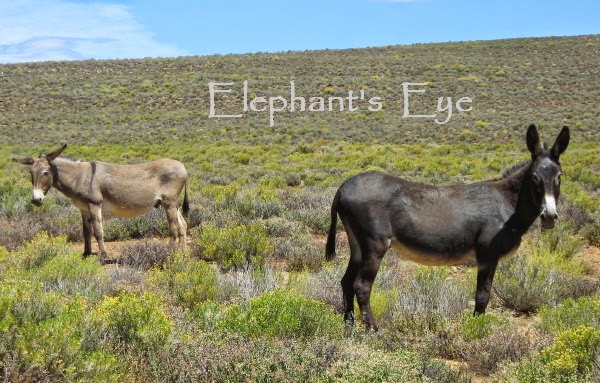by Diana Studer
- gardening for biodiversity
in Cape Town, South Africa
An Aloe against snowy mountains in July 2008. The Karoo Desert National Botanical
Garden is in the Klein Karoo with succulents which are adapted to winter
rain.
 |
| July Aloe and snow at the National Botanical Garden in Worcester |
Travelling through the Karoo, you will see donkey-carts,
transport for small farmers. Lovingly hand crafted, wooden carts.
Karoo is a Khoisan word, from the first people of South
Africa. Dry Land or Place of Great Thirst.
When we visited the Karoo
National Park November 2010, the 10 km distant town of
Beaufort West was gripped by a severe drought.
Tourists at the Karoo National Park don't
expect suburban lawn. If you must have a lawn try polyculture-lawn-primer.
These sprinklers were running. All day. Next to a town that was
begging passing travellers to bring them bottled water! 4-million-litres.
One
quarter of the rise in global sea levels is due to the transfer of fresh water
into the oceans, as much of the groundwater used for irrigation is running off
or raining into the ocean circleofblue.
Reusing grey water, 40-60% would be returned to the water
table via the garden. This chemically green lawn was contaminating the pristine
Karoo National Park.
Water was formed with our planet 4.45 billion years ago worldwater. About 97
percent of water is ocean saltwater. Most freshwater is locked up in the polar
icecaps. Only .003 percent of the earth's water is available for us to use.
I've been reading about rain, said Jean. That utterly
distinctive smell, when rain first starts to fall – two scientists have
analyzed it. They’ve named it ‘petrichor’ from the Greek for stone and for the
‘blood’ that flows through the veins of the gods. It’s the scent of an oil
produced by plants partially decomposed, undergoing oxidation and nitration, a
combination of three compounds. The first raindrops reach into stone or
pavement and release this plant oil, which we smell as it is washed away.
We can only smell it as it is washed away.
– From The winter vault by Anne Michaels. (The term
was coined in 1964 by two Australian researchers, Bear and Thomas)
 |
| To Nieu Bethesda and the Owl House in March 2010 |
This is an anonymous satire.
Agony aren't
Dear Uncle,
A man who said he was from Shell came onto my farm last week
and said he wanted to go ‘fracking’. Should I lock up my daughters or my sheep?
Ouboet
Graaf Reinet
Dear Ouboet,
Be afraid, be very afraid – it sounds like he’s got a
very, very big carbon footprint.
Uncle
The Great Karoo in South Africa. Wide open spaces and very
hot. You need power. Solar power? Photovoltaic cells? Oh no – we’ll try fracking.
Millions
upon millions of litres of water are required for the process. Down 4 or 5
kilometres thru the rock and into oil-bearing shale, to harvest the natural
gas. When they asked the nice Dutch man from Shell where he was going to get
all the water in a drought-stricken area – he said brightly – we’ll use trains
to bring in sea-water. From a thousand kilometres away, and over mountain
ranges. No research has ever been done on deep aquifers at this level. What
chemicals? Oh well … we can’t say, it is a long list.
Fracking the Great Karoo. A great idea.
As Janus, the god of doorways, looks back to 2014 and forward to 2015, I wish you, my readers, a Very Happy New Year!
Pictures by Diana and Jurg Studer
of Elephant's Eye on False Bay
(If you mouse over teal blue text, it turns seaweed red.
Those are my links.
To read or leave comments, either click the word Comments below,
or click this post's title)













0 Comments